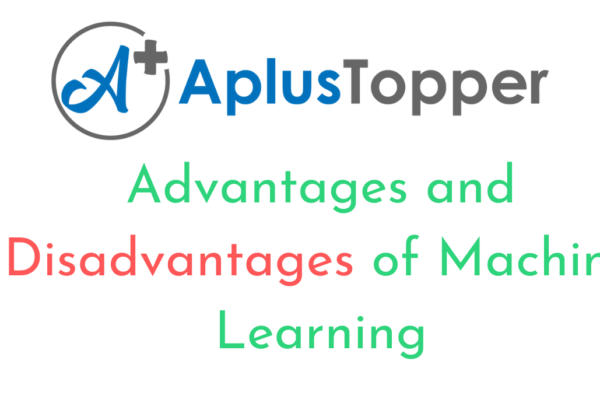Possibly one of the most studied and sought-after tech fields today is machine learning. The purpose of machine learning is to program computers to accept real-world data from actual people using technology and identify a person’s preferences and tendencies from that data. Advanced machine learning courses are now being offered by numerous universities. But do you need a master’s degree for machine learning?
A master’s degree is not required to start research or professional work in machine learning. Even though taking these advanced courses will undoubtedly be beneficial to you, they are not absolutely necessary. To get started on your own and create a respectable resume, there are many resources available online.
Keep on reading and you will learn more!
Machine Learning Engineer: What Is It?
Artificial intelligence (AI) in the form of machine learning enables a system to learn from data rather than through explicit programming. Before being used for the purpose for which it was designed, an ML program must first be “trained.” Machine learning is accomplished through training. In order to create more accurate models based on the training data, the programming makes use of algorithms that ingest that data. The training data is provided by a machine learning engineer. After a machine learning algorithm has been trained with data ingestion, a machine learning model is an output produced. A machine learning model produces an output when fed real-world data after being trained. A predictive model will be produced by a predictive algorithm. When given new data, the predictive model makes a prediction based on the training set of data.
A machine learning model’s comprehension of the types of associations that exist between data elements can be significantly improved through training and iterative online learning. These patterns and associations would be easily missed by human observation due to their size and complexity. The accuracy of predictive models must be increased through the use of machine learning techniques. Different approaches based on the type and volume of the data are available depending on the nature of the business problem being addressed.
Every one of these strategies, as well as how and when to use them, must be understood by a machine learning engineer. supervised learning, unsupervised learning, reinforcement learning, and deep learning are the four fundamental techniques used. The data that will be used to develop a learning model is where these approaches diverge. Animal identification from fresh images is one example of how supervised learning is applied to data that already has labels. Using unidentified components of the email, unsupervised learning is frequently used to detect spam or other unwanted emails. In that it makes use of labeled data, reinforcement learning is similar to supervised learning. Reinforcement learning, on the other hand, uses real-world data to iteratively improve its modeling rather than training data. Deep learning employs neural networks to iteratively learn from data. When used in applications like speech and facial recognition, it is especially helpful for discovering patterns in unstructured data.
To identify different types of data sets and be able to define at least basic patterns and tendencies in the data, a machine learning engineer needs to have a high level of mathematical proficiency. An ML engineer must then use sophisticated programming techniques and algorithms to create a system capable of ingesting a specific type of data and transforming it into the desired modeling output using a machine learning platform, such as those provided by IBM, Microsoft, Google, and Amazon.
What Does An Engineer In Machine Learning Do?
Machine learning engineers evaluate data streams and choose the best method for creating models that return polished information to satisfy the needs of an organization. They possess advanced skills in mathematics, programming, and data science. ML engineers supply data after the programs are written to help the system learn how to interpret data and make predictions or inferences. Once the system has received enough training, it is put into use in the appropriate environment. The system’s performance must then be tracked by machine learning engineers, who must also assess the modeling’s output data to guarantee its accuracy. In smaller businesses, machine learning engineers frequently also serve as data scientists, but in larger businesses, the two professions collaborate to provide clean data and build an ideal machine learning system that data scientists will use to deliver the necessary data.
Machine learning platforms serve as the necessary tools for creating sophisticated programs that ingest data and learn how to produce the most precise identifications, predictions, or other modeled outputs. Among the most widely used programming languages are, but are not limited to, the following:
- Python
- Java
- C
- C++
- JavaScript
- R
- Scala
- Julia
A strong understanding of the common programming and modeling algorithms is also a requirement for machine learning engineers. Although knowledge of these algorithms across the four fundamental approaches (supervised learning, unsupervised learning, reinforcement learning, and deep learning) is crucial, customized algorithms or simple modifications to the standard algorithms are occasionally needed. Listed below are a few of the most popular algorithms:
- Decision trees
- Naïve Bays Classifications
- Ordinary Least Squares Regression
- Logistic Regression
- Support Vector Machines
- Ensemble methods
- Clustering algorithms
- Principal Component Analysis
- Singular Value Decomposition
- Independent Component Analysis
Additionally, ML engineers must document their procedures and findings, as well as communicate their findings to internal stakeholders and occasionally external parties.
Designing Machine Learning Curriculum By Yourself
Now that we’ve established that you don’t necessarily need a master’s or a doctorate, to be involved in machine learning, let’s discuss how you can go about learning and mastering this domain on your own.
Machine learning is more than just using algorithms for machine learning. If you want to be as knowledgeable as someone who holds a master’s or doctoral degree, there is a specific set of skills you will need to master. These abilities have been divided into the following five groups:
Programming
The next step for you would be to somewhat master programming once you’ve completed a foundational course in computer science. While becoming an expert software engineer is not necessary, having some familiarity with the world of application or software programming can be very beneficial.
Try becoming an expert in Python and R for machine learning. The “Python 3 Programming Specialization” is a fantastic five-course specialization offered by the University of Michigan. This course covers everything you need to know about Python programming, from variables, loops, and conditionals to class inheritance, lambda expressions, etc.) before you can proceed on to a more advanced course.
The course Mastering Software Development in R on Coursera from John Hopkins University is a fantastic resource for learning R. From the beginning to a serious level, you can advance.
Computer Science
Your best bet is, to begin with a basic computer science course if you’re just starting out on your path to mastering machine learning. Machine learning and AI are, after all, built on the principles of computer science.
Introduction to Computer Science, a fantastic course from Harvard University, is available on edX. From the fundamentals of data structures and algorithms to programming, this course covers everything you need to get started in computer science. Additionally, a thorough examination of the field and application of computer science, including web development, security, and software engineering, is covered.
Machine Learning Basics And Data Science
The fun really begins here. You can now concentrate on learning data science and machine learning skills. Anyone interested in machine learning should take Andrew Ng’s renowned Machine Learning course on Coursera. With this course, Ng adopts a novel approach by beginning with the fundamentals and gradually introducing some essential Mathematics.
The Applied Data Science with Python Specialization from the University of Michigan can naturally follow the Python 3 Programming Specialization we discussed earlier in the field of data science. You can learn pretty much everything you need to know to begin working as a data scientist in this five-course specialization.
It might be beneficial to learn the foundations of AI as you set out to master machine learning. On MIT’s OpenCourseWare, Professor Patrick Henry Winston offers a well-known introductory Artificial Intelligence course. The foundational theories of artificial intelligence are covered.
Mathematics
You’ll also need some mathematical training if you want to master machine learning. Pure mathematics courses are not required. Instead, enrolling in math classes with a data science or computer science focus would be beneficial.
Another useful course on Coursera is mathematics for machine learning. This course, which is offered by Imperial College, covers a variety of subjects, including multivariate calculus, linear algebra, eigenvalues, and eigenvectors.
Advanced Machine Learning
It is now time to delve into the depths of machine learning after you have covered all of the skills mentioned in the previous sections. If you master the skills listed in this domain, you will be as qualified in machine learning as someone who holds a master’s or even a doctoral degree.
A logical continuation of Andrew Ng’s introductory machine learning course on Coursera is his deep learning specialization. Five different classes make up this specialization. The courses are:
- Sequence Models
- Structuring Machine Learning Projects
- Convolutional Neural Networks
- Deep Neural Networks Improvement: Hyperparameter tuning, Regularization, and Optimization
- Neural Networks and Deep Learning
Take the Amazon Web Services course “Getting Started with AWS Machine Learning” on Coursera if you want to expand your practical knowledge base. You will learn how to get started using machine learning in one of the most popular cloud computing services, AWS, in this course.
Disadvantages
You are probably already aware of a few major advantages to earning an MSc in machine learning. I’ll list a few drawbacks to leveling the playing field because I think it’s only right to do so.
- Academic funding is always a significant factor in why individuals choose not to pursue further education. It goes without saying that taking an MSc course is an expensive investment; for instance, the MSc Machine Learning course I took in 2018–2019 cost £10,300. It was more than £20,000 for students from other countries.
- The adjustment period could be longer for some. Going back to school again may make it challenging for some people to get used to the rigorous academic schedule. People who spent a significant amount of time working before returning to school will undoubtedly find the change abrupt. A description of my personal experience adjusting to an academic lifestyle can be found in the article that follows.
Conclusion
We provided a curriculum for studying machine learning on your own in this article. You can create a strong resume if you can back that up with a few of your own research projects.




